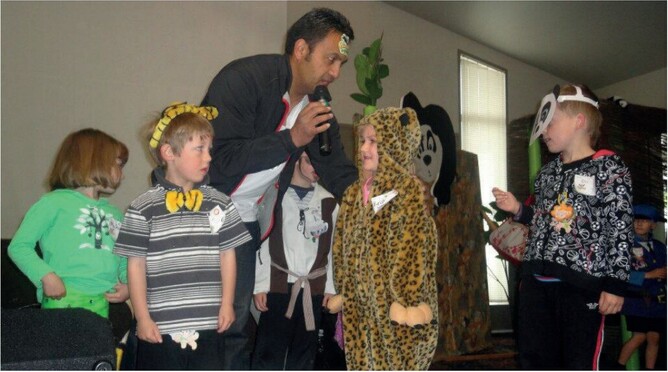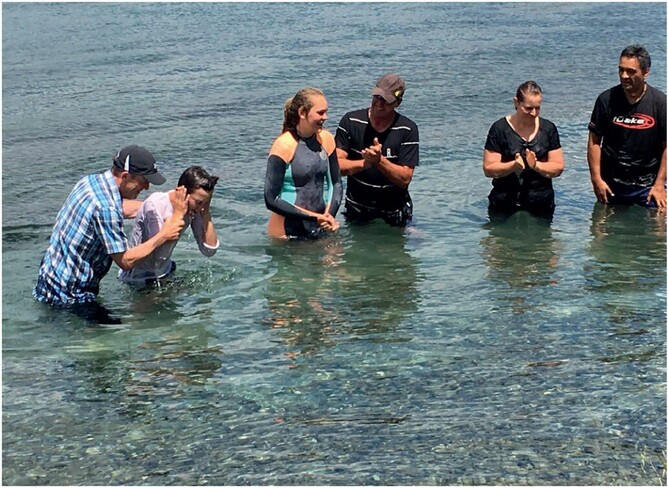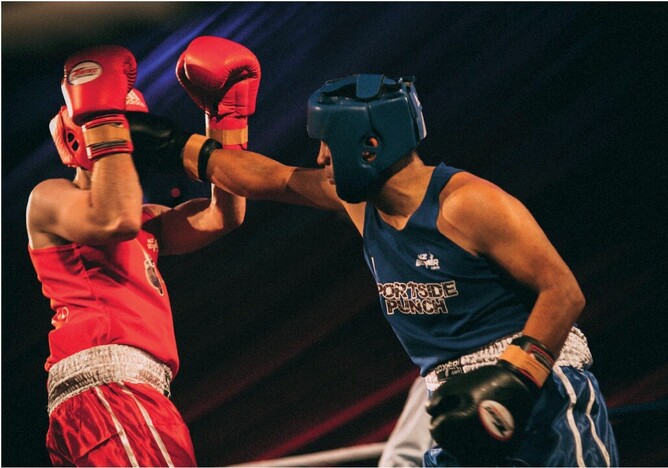Former Pastor Tony Dudley, Orwell Street Church
By his own admission, Tony Dudley isn’t your typical Brethren pastor.
He plays rugby with Oamaru locals. He throws punches in the boxing charity Fight For Life. He feels comfortable having drinks on Friday nights with the town’s freezing workers.
And he’s completely sold on the idea that the calling of the church isn’t to bring people into the church, but to take Jesus to the people.
“I didn’t grow up in the Brethren Church, which gave me advantages when I became a Brethren pastor. I was able to ask the question ‘Why do we do what we do?’ My background enabled me to rethink the calling of the church, and evangelism, which had implications for leadership.
“It’s fair to say that my leadership and perspective caused a degree of discomfort for Orwell Street.”
When it comes to the church’s calling, the key driver for Tony is the incarnation of God. “God came into the world. That’s the most profound truth you could ever embrace. He came to us, in flesh and blood, through Jesus. God went out to the community and it makes complete sense for His people to follow His lead and do the same.
“In a way, we’ve got the whole thing back-to-front. Most churches use the ‘attraction’ model, where we try to make unbelievers come to us. But that isn’t the way of God. The way of God is to go to the people. And that isn’t merely a way of doing church. Going with Jesus to the community is a way of life.”
For Tony, that way of life led him to the local freezing works.
“The Oamaru Freezing Works used to have a work-place chaplain. But they eventually did away with that because, for them, it had zero credibility; they couldn’t relate to the chaplain.
“When I approached them and offered to take up the role, they were interested because they felt I was one of them. Or enough like them. I had played rugby in my younger days and when the workers found out about that (and I made sure they did), they invited me to join them. And I did.
“That, in itself, opened many doors into their lives. So did joining them for Friday night drinks. I was able to be one of them while also remaining true to myself.“
Tony knew that some in his church felt uncomfortable. They wondered what he was doing and where he was leading them with this approach.
“I’ll say it again. It’s not about bringing people to church; it’s about taking Jesus to the people. You have to earn the right to talk to them about faith and the issues of life. You earn that right by loving them. But to love them, you have to know them, and that means doing life with them, shoulder to shoulder.
“One Sunday morning, I got up to speak and said to the church: ‘We have a problem in New Zealand with poverty. But the problem isn’t poverty. The problem is that you don’t know any people who are in need.’
“Until you know someone in need, you can’t be compassionate. When you do know such a person, it changes your whole perspective.”
Christians periodically hear stories of compassion from visiting missionaries who are working side-by-side with locals overseas. But as good as these accounts are, Tony believes it is vital that each of God’s children become part of their own good story.
What role does leadership play in helping people ‘get in’?
“For a leader to be an agent of change, you need to take some people with you. Modelling is crucial. If a leader is going to call others to get involved with community, that leader has to be doing it themselves. That’s what gives them credibility in the pulpit.
“But if you’re going to move your people from the front, it’s less about telling them what they need to know, and more about challenging them to do something specific. It‘s ‘Here’s what I want you to do.’
“Some of the most relational things happened around the table. So I told my church: ‘Here’s your challenge: have someone around for a meal this week. Treat them as honoured guests. Don’t preach. One rule: they can’t be a Christian and it should be someone you’ve thought about having around.
“The following week we had so many stories. One guy had a Romanian family over for dinner. The Romanian guy couldn’t believe the hospitality. While he was in the house, he saw the host’s religious books, which started a whole series of conversations.
“We also challenged our youth to a bake-off. Then we told them to take their baking to the police, social workers, the fire service and ambulance people and say, ‘Thank you for doing what you do.’ These community people were moved by what the young people did, and all of them asked, ‘What’s this about?’
“We’ve taken firewood to people and stacked it for them. We’ve approached the local supermarket and asked for permission to help take groceries to people’s cars.”
Then Tony got into a fight.
“Because I had a profile in this community, I got involved in Fight For Life. I have never trained so hard and I became known as the PUNCHING PREACHER. I put up a good fight on the night. I lost, but it helped deepen my connection with the community and helped them overcome some of their hang ups about Christianity and the church.
“It’s all about going out to the people. Like God did.”





